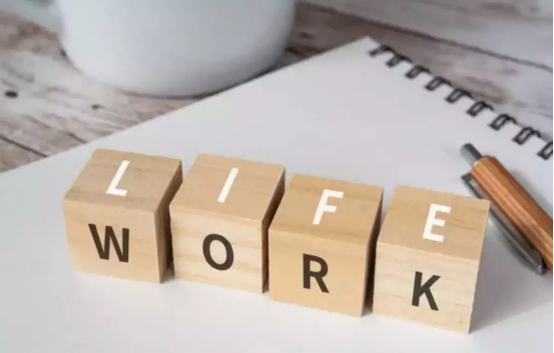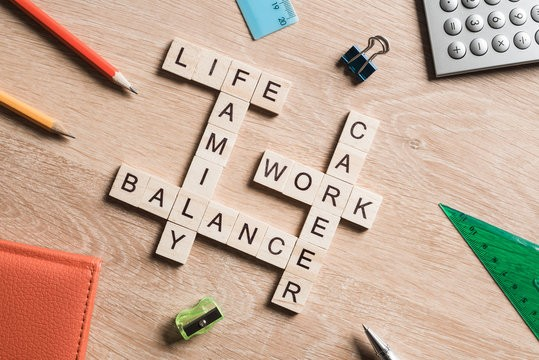Work-Life Balance: Master the Art of Living Your Best Life
In today's fast-paced and highly connected world, achieving a proper balance between work and personal life can often seem like an insurmountable challenge. The boundaries between work and home have become increasingly indistinct, especially with the advent of remote work and the constant availability through advanced technology. However, maintaining a healthy work-life balance is of utmost importance for your overall well-being, mental health, and long-term career success. This in-depth article delves into the concept of work-life balance, presents actionable strategies to master it, and showcases real-life examples of successful individuals who have managed to harmonize their professional and personal lives.

The Growing Need for Work-Life Balance
Work-life balance is not simply about dividing time equally between work and leisure activities. It's about crafting a lifestyle that enables you to flourish in both your personal and professional realms. The consequences of a lack of work-life balance can be significant and far-reaching, including burnout, decreased productivity, strained relationships, and even serious health issues such as anxiety and depression.
According to the American Psychological Association, chronic stress resulting from work can lead to physical health problems like heart disease and high blood pressure. In contrast, a balanced life can bring about increased happiness, improved health, and greater productivity at work. The demand for better work-life balance is on the rise, with employees increasingly valuing flexible work hours, mental health days, and opportunities for professional development that don't come at the expense of personal time.
Understanding Work-Life Balance: What Does It Really Mean?
Work-life balance doesn't imply spending exactly the same amount of time on work and personal activities. It's about finding a dynamic equilibrium that suits your unique circumstances and needs—where you feel fulfilled in your career without sacrificing your personal relationships, health, or hobbies.

Flexibility Over Perfection: Balance is highly personal and can change over time. What works during one stage of your life might not be suitable for another. For instance, the balance required by a young professional just starting out may be vastly different from that needed by a parent juggling family responsibilities and a career. The key is to be flexible and adaptable, adjusting your approach as your circumstances evolve.
Setting Boundaries: One of the core elements of work-life balance is setting clear boundaries. This can involve establishing specific working hours, turning off notifications after work hours, and creating a dedicated workspace if you work from home. Boundaries are essential for protecting your personal time and preventing work from encroaching on your private life.
Strategies for Mastering Work-Life Balance
To achieve a harmonious work-life balance, it's crucial to implement strategies that align with your personal and professional goals. Here are some practical tips:
Prioritize Your Time with the 80/20 Rule: The Pareto Principle, or the 80/20 rule, suggests that 80% of your results come from 20% of your efforts. Identify the tasks that contribute the most to your goals and focus on those. For example, if certain meetings don't add significant value, consider whether you can delegate them or skip them altogether.
Time Blocking: Schedule your day into blocks of time dedicated to specific tasks, including work, exercise, family time, and relaxation. This technique helps you stay focused on the task at hand and ensures that you allocate sufficient time for personal activities.
Learn to Say No: Overcommitting is a common cause of imbalance. Learning to say no to additional projects or social commitments that don't align with your priorities can free up valuable time and reduce stress.
Outsource and Delegate: Whether it's hiring a virtual assistant for administrative tasks or outsourcing household chores like cleaning, delegating responsibilities can free up your time for more important aspects of your life.
Unplug After Work Hours: Make it a habit to unplug from work once your working day is over. This means turning off email notifications, avoiding work calls, and setting your phone to "Do Not Disturb" mode during personal or family time.
The Role of Employers in Work-Life Balance
Employers play a crucial role in promoting work-life balance. Companies that foster a supportive work environment not only have happier and healthier employees but also benefit from higher productivity, reduced turnover, and better overall performance.
Flexible Work Arrangements: Offering flexible work options such as remote work, flexible hours, or compressed workweeks can greatly enhance employee satisfaction. Flexibility allows employees to tailor their work schedules to fit their personal lives, reducing stress and increasing job satisfaction.
Encouraging Time Off: Companies should actively encourage employees to take their paid time off without feeling guilty. This not only helps prevent burnout but also enables employees to recharge and return to work with renewed energy.
Mental Health Support: Providing resources like Employee Assistance Programs (EAPs), access to mental health professionals, and promoting a culture of openness around mental health can significantly improve work-life balance.
Clear Expectations: Managers should set clear expectations about work hours and performance. When employees know exactly what is expected of them, they can better manage their time and set appropriate boundaries.
Case Studies: Success Stories of Balanced Living
Here are some examples of successful individuals who have mastered the art of work-life balance:
Richard Branson: The founder of Virgin Group, Richard Branson, emphasizes the importance of work-life balance in his success. He attributes much of his productivity to maintaining an active lifestyle, prioritizing family time, and delegating tasks. Branson believes that "fun" should be an integral part of both your work and personal life, and he often shares how taking breaks to enjoy hobbies like kite surfing or spending time with his family helps him recharge.

Arianna Huffington: The co-founder of The Huffington Post and founder of Thrive Global, Arianna Huffington, experienced burnout early in her career, which led her to become a passionate advocate for work-life balance. She emphasizes the importance of sleep, mindfulness, and unplugging from technology as key components of maintaining balance.

Jeff Bezos: The founder of Amazon, Jeff Bezos, famously speaks about maintaining a work-life "harmony" rather than a strict balance. He emphasizes integrating work and life in a way that neither one detracts from the other. Bezos encourages employees to avoid binary thinking about work versus personal life and instead find ways for them to complement each other.

Incorporating Self-Care into Your Daily Routine
Self-care is essential for maintaining work-life balance. It involves taking deliberate actions to care for your physical, mental, and emotional health.
Exercise Regularly: Physical activity is not just beneficial for your body; it's crucial for mental clarity and stress relief. Schedule workouts just as you would schedule meetings and treat them as non-negotiable.
Mindfulness and Meditation: Practices like meditation, yoga, and deep breathing can help you stay grounded and manage stress. Even just a few minutes a day of mindfulness can make a significant difference in how you handle work pressures.
Prioritize Sleep: A good night's sleep is fundamental to maintaining balance. Sleep deprivation can affect your ability to focus, manage emotions, and make decisions. Aim for 7-9 hours of quality sleep per night and establish a bedtime routine that promotes relaxation.
Digital Detox: Limit your screen time and take breaks from social media to reconnect with yourself and those around you. Digital detoxes can help reduce stress and improve your focus and well-being.
Building Support Systems
No one achieves balance alone. Building a support system of family, friends, and colleagues is crucial.
Lean on Your Network: Don't be afraid to ask for help when you need it. Whether it's delegating tasks at work, sharing parenting duties, or simply talking to someone when you're overwhelmed, your network can provide the support you need.
Communicate Openly: Transparency about your needs and limitations can help others understand your boundaries. This applies to both your work environment and personal life.
Find a Mentor or Coach: Seeking guidance from a mentor or life coach can provide you with tools and strategies to better manage your work and personal responsibilities.

Mastering Your Work-Life Balance
Mastering work-life balance is an ongoing process that requires self-awareness, deliberate choices, and adaptability. By setting boundaries, prioritizing your well-being, and leveraging support systems, you can create a balanced lifestyle that allows you to thrive both personally and professionally. Remember, balance doesn't mean perfection—it's about finding a rhythm that works for you and adjusting as needed. Prioritize your health, embrace flexibility, and take proactive steps to ensure that you're living your best life, both at work and at home.


